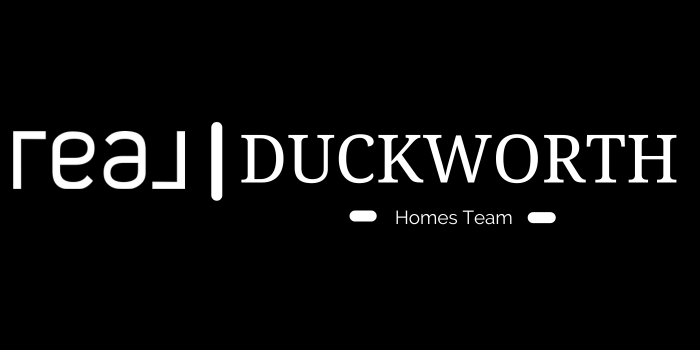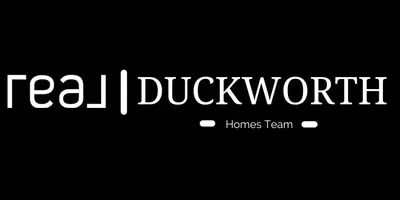7 Takeaways: What is a Deed?

- What is a Deed?
- What is the Title?
- What Sets a Deed Apart from a Title?
- The Significance of Being Listed on a Deed
- Exploring the Principal Types of Deeds
- The Number of Names on a Deed
- Unraveling the Realm of Title Insurance
1. What is a Deed?
A property deed is a legally binding document that facilitates the transfer of property ownership from the seller to the buyer. This document, usually a physical, official record, is commonly filed in courthouses or assessors' offices across both Rhode Island and Massachusetts. The essence of the deed lies in its role as the vehicle for transferring the title, which we will elaborate on shortly.
To render the deed legally valid, it must bear the signatures of both the seller, referred to as the grantor, and the buyer, known as the grantee. Furthermore, a comprehensive property description must be included within the deed.

2. What is the Title?
Although the term "title" might suggest a tangible document, it primarily represents a legal concept – the rightful ownership of a property. The deed serves as the tangible instrument that effectuates the transfer of this title from the seller to the buyer. The concept of a title encompasses a property's "bundle of rights," encompassing:
- Right of possession:
Asserting your ownership of the property.
- Right of control:
The freedom to use the property within legal boundaries.
- Right of exclusion:
The ability to decide who enters your property.
- Right of enjoyment:
The liberty to utilize and enjoy the property as per legal guidelines.
- Right of disposition:
The privilege of selling the property.
3. What Sets a Deed Apart from a Title?
Given the intertwined roles of deeds and titles in the real estate arena, they are often used interchangeably. Nevertheless, it is crucial to discern that they are two distinct legal concepts. A deed materializes as a documented record, publicly recorded, facilitating the transfer of the title from seller to buyer.
The title, in contrast, constitutes an abstract notion, signifying an individual's lawful rights to a property. It does not manifest as a physical document. To differentiate the two:
Deed = Document
Title = Concept

4. The Significance of Being Listed on a Deed
Incorporating your name on a deed denotes your legal ownership of the property. Should you co-own a home with a partner and your name does not appear on the deed, your partner retains the authority to sell the property and retain the proceeds, unless a distinct document outlines an alternative arrangement.
In the event of your partner's passing, without your name on the deed, you may not inherit the property, unless specified otherwise in a will. Thus, when sharing a home with a partner, ensuring your name appears on the deed is imperative to secure rights pertaining to occupation, sale, or mortgage on the property. It is important to distinguish the deed from the sales contract, which pertains to the property sale agreement.

5. Exploring the Principal Types of Deeds
Diverse categories of deeds exist, each offering varying levels of title assurance. Regardless of the level, deeds serve as a means to establish property ownership. In the domains of Rhode Island and Massachusetts, these deeds fall into two broad categories: private and official.
Official deeds predominantly involve legal proceedings in a court of law, while private deeds revolve around residential properties and private ownership. Most property transactions within these states involve private deeds. Beyond this distinction, deeds can also vary based on title warranties and deed types, which encompass the following classifications:
General Warranty Deed
Assures the buyer that the property is free from liens or claims, with the seller compensating the buyer for any such encumbrances.
Special Warranty Deed
Similar to a general warranty deed, this type guarantees a clean title during the seller's ownership period, not prior.
Grant Deed
Provides limited guarantees related to the property's title.
Quitclaim Deed
Offers no guarantees about the grantor's interest in the property and provides the least protection to the grantee.
Bargain and Sale Deed
Transfers the property with all existing liens or problems to the buyer, typically used in specific scenarios.
6. The Number of Names on a Deed
There are no restrictions on the number of individuals who can be listed on a deed. If you wish to add your partner's name to the property title to make them a co-owner, you will need to update the deed accordingly. It is advisable to consult with an attorney to comprehend the implications of such decisions.
In cases where both partners' names appear on the deed but only one is listed on the mortgage, the person named on the title bears responsibility for mortgage payments. If your name is on the deed but not the mortgage, you are not legally obliged to make mortgage payments.
7. Unraveling the Realm of Title Insurance
Title insurance safeguards buyers from issues that may have arisen in a property before its acquisition. Consider this scenario: previous homeowners had plumbing work done but failed to pay the plumber, resulting in a debt, often referred to as a "lien," against the property.
By procuring title insurance, you shield yourself from such liens affecting your status as the new homeowner. Most mortgage companies mandate the purchase of title insurance, providing an added layer of legal protection. In certain instances, private mortgage insurance may also be necessary, though there are methods to eliminate it.
Apart from shielding against liens, title insurance also safeguards against property loss, damage, defects, or encumbrances within the property's title. Typically, this insurance is a one-time payment made at the closing of the home-buying. It differs from car or health insurance in that it focuses on safeguarding new homeowners from pre-existing problems associated with the property. Other forms of insurance, such as auto or health insurance, pertain to issues that may arise subsequently.

How Does Title Insurance Work?
Upon selling or purchasing property, transaction records are publicly stored in the county where the property is located. These records include details about levies or liens on the property.
After securing title insurance, a title company scrutinizes these public records for potential ownership disputes. A title examiner confirms ownership and debts related to the property, while the title company's underwriter assesses whether the property can be transferred to a new buyer. Issues may encompass filing errors, undisclosed heirs, or forgeries.

FAQs
What is the primary purpose of a deed?
The primary purpose of a deed is to facilitate the transfer of a property's title to a new owner, typically occurring during a real estate transaction.
Is a mortgage the same as a deed?
No, a mortgage and a deed are distinct entities. A deed establishes property ownership, while a mortgage is a loan agreement between a borrower and a lender, often utilized to purchase or refinance a home.
Is a deed considered a contract?
Although akin to a contract, a deed necessitates written documentation and typically involves more formalities than a standard contract.
Key Takeaways
In summary, a deed constitutes a tangible document that transfers property ownership, identifying the property's rightful owner. Rhode Island and Massachusetts offer various types of deeds to accommodate different transaction scenarios and participants.
Understanding the nuances of these deed types can empower individuals to transfer property to family members, partners, or other parties while safeguarding against liens, encumbrances, and previous property issues. In the dynamic real estate landscape of Rhode Island and Massachusetts, an informed approach to deeds and titles is key to successful property transactions. Feel free to reach out to one of our experienced Real Estate Agehttps://www.duckworthhomes.com/agentsnts for further guidance.
Categories
Recent Posts










